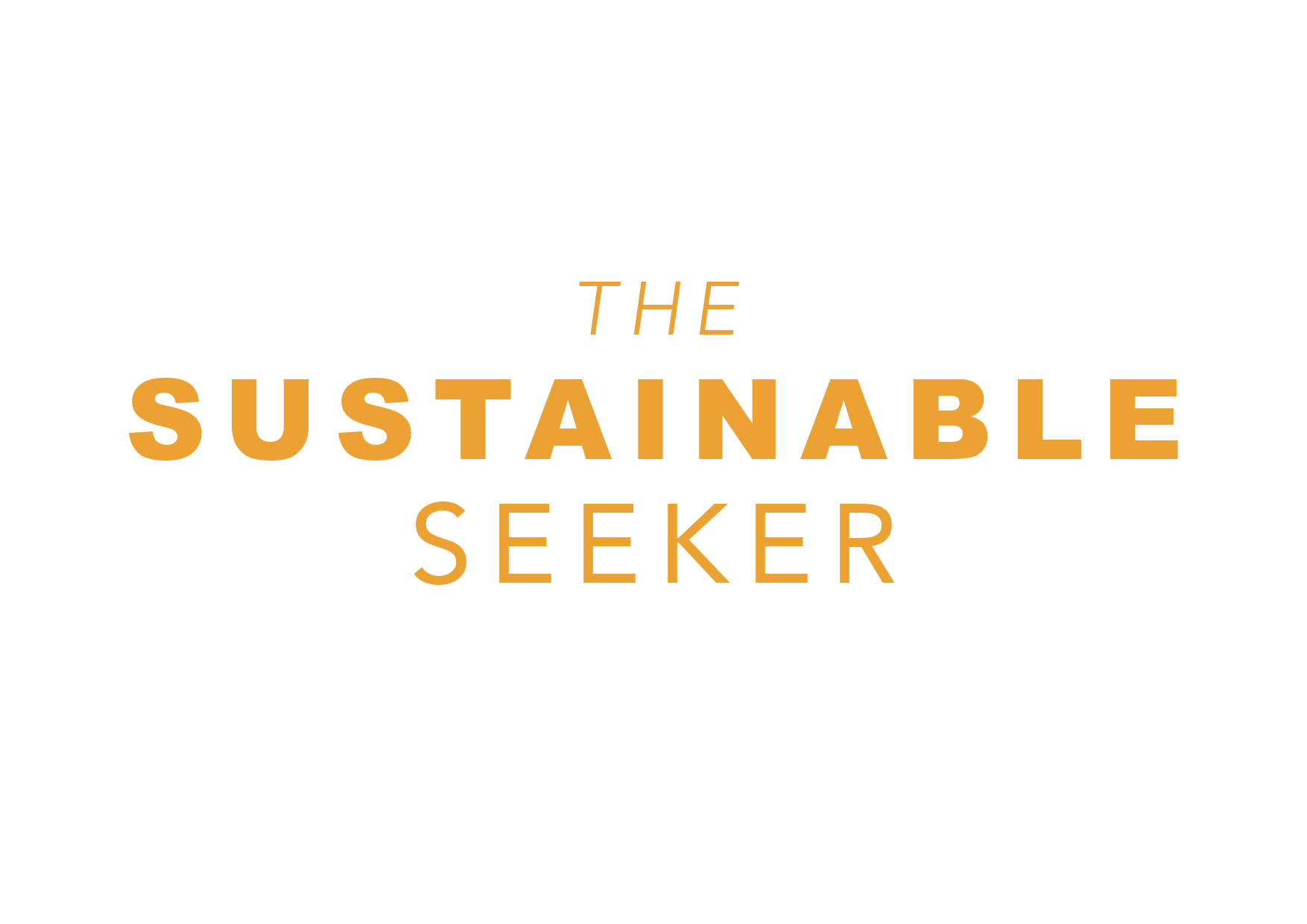Sustainable Camping: An Ultimate Guide

The sound of crickets and crackling embers from the campfire… making coffee in your reusable mug or enjoying the cool breeze of nature instead of an air conditioner – how different is camping than sustainable camping?
Why is there sustainable camping, when being out in the bush or by the beach is already quite environmentally friendly?
Truthfully, there are many ways to make camping more eco friendly.
Sure, going camping helps you save money but sometimes, it comes at a cost to the planet.
It’s wonderful to look after the Earth while sleeping under the stars and waking up to the smell of dewy grass.
Read on for the best sustainable camping tips!
DISCLOSURE
Some of the links on here are affiliate links and I may earn if you click on them, AT NO EXTRA cost to you. Hope you find the information here useful! Thanks.
What Is Eco-Camping?
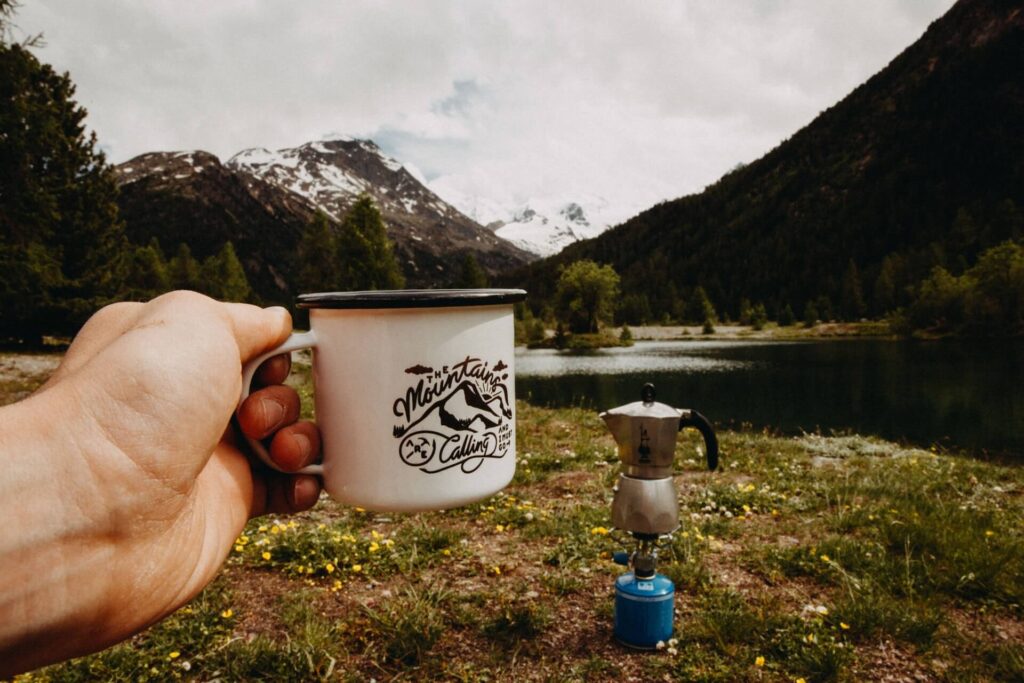
Getting immersed in nature can make us forget that even the smallest of actions can have a big impact on the environment because the Earth is indeed fragile.
Eco-camping means you leave no trace of your activity when you leave the camping site which includes how you answer nature’s call.
You can achieve this by following the sustainable camping tips below when planning your trip, choosing ecological gear and most importantly, disposing of your waste in a way that doesn’t deteriorate the environment.
Tips For Sustainable Camping
Pack Light
You must have heard the saying – less is more. Economical packing helps reduce the effort your transport needs to get you to the destination as it’ll use less gas.

Include more sustainable items in your backpack, use refillable metal (non-plastic) bottles for your facial wash or shower liquid so you won’t have to keep buying new products.
Also, take advantage of technology by downloading offline maps instead of taking large paper maps with you.
Green Transport Options
Think about how you can cut down transport emissions.
- Can you walk or cycle to the camping location?
- Is there public transport you can hop in?
- Or perhaps you can check out the range of new, low-emission motorhomes?
There’s a wide array of options to make your trip more sustainable.
Since it’s more convenient to take 4-wheels, try driving at a steady speed to avoid changing speed frequently.
If you’re travelling with friends, carpool as much as possible. Another tip is to scout for locations nearer to home to avoid a longer journey.
In-depth research might help discover more exciting places in your backyard!
Stay In Eco Friendly Campsites
You can check out ECOCAMPING, a sustainability management system for environmental and nature protection, safety and quality on camping sites.
They award ecological camping businesses and sustainable glamping sites that choose to use solar energy or planting vegetable gardens, for instance.
If this happens to fall into your holiday plans, you can check camping.info for sites with the ECOCAMPING Award and the EU Ecolabel.
Pack Eco Friendly Personal Hygiene Products
Using chemically heavy products when washing off in the lake is a threat to nature.
Before going on a camping trip, take time to try eco friendly products that are easily found online, to see which suits your skin type and hair texture.
Knowing you’re not destroying the underwater ecosystem while taking a dip in the crystal-clear water that’s glimmering in the afternoon sun is amazing!
If you’re showering at a campsite, ensure the tap is turned off while you brush your teeth with a bamboo toothbrush and toothpaste chewing tablet!
Unplug From Electronic Gadgets
Think again why you choose to spend time in nature. Do you enjoy watching wildlife or explore nature trails with your friends?

It’s indeed the best remedy to recharge yourself, without having to recharge your phone. But if you really need to – for the map, music or lights, get a portable phone charger or also known as the ‘powerbank’, and make it a solar-powered one.
Support Local Shops
If you’re on a multiple-day trip, at some point, you’ll run out of food or essentials.
Why not try the small, local eateries by the roadside instead of large supermarket chains?
Support the farmers market for groceries, get souvenirs from the little shops around the corner.
You might discover local delicacies you’ve never heard of or perhaps create an everlasting friendship with people who would take you to the road less travelled.
Respect The Environment
Double-check the campsite before packing up the tent to make sure you didn’t leave any organic and non-organic rubbish behind.
Leaving no trace isn’t limited to just waste. Leave the campsite how you found it.
Don’t break off branches or pick flowers. Separate the rubbish as you go and recycle when you’re back home.
Answering Nature’s Call
While being in the absence of facilities, here are some tips for you to relieve yourself responsibly:
- Make sure you’re within 200 feet of a food or water source.
- No business on the trail! Respect other campers.
- Copy what cats usually do – dig a small hole, relieve yourself, then cover it.
- Prepare a recyclable bag to throw the used toilet paper and dispose of it in the nearest bin you can find. Otherwise, keep it out of reach of wildlife and throw it as soon as you find a bin.
Is A Campfire Necessary?

Lighting a campfire sounds exciting but before you light the match:
- Check if it’s allowed and if the area is safe.
- Avoid cutting living trees to burn the fire.
- Don’t leave the fire unsupervised.
- When you put the fire out, ensure there are no more embers.
- Keep water or dirt nearby in case of an emergency.
Use Eco Friendly Sunscreens, Insect Repellants And Ointments
Exploring the great outdoors will expose you to bites and stings from bugs, mosquitoes and the likes.
While you’re advocating sustainable camping, it should also be your priority to find non-harmful chemicals to spray into the air or your body.
Go Green With Your Gears
For most of us, camping isn’t a regular activity. You might not have camping tents lying around in the house. So, ask your outdoorsy friends if you can borrow their equipment but if you really need to invest, get multi-purpose, long-lasting equipment made of recyclable materials.
Be Waste Wise
The most important part is how you dispose of your waste. While plastics have a massive impact on the environment, organic wastes do too!
Here’s How You Can Dispose of Organic Waste Wisely
If you think throwing apple cores or banana peels anywhere is okay, you’re wrong.
Disposing of organic waste irresponsibly will disturb the natural diet of wildlife and bugs. In turn, the natural food chain gets interrupted, causing disease and stirring the whole ecosystem.
Roaming around campsites is not the usual habit of wildlife but the whole thingamajig has made them attracted to human food.
Contrary to popular belief, leaving seeds in nature isn’t wise at all.
Yes, a tree might grow but have you ever thought of whether it is native to the area? If it doesn’t, it could affect the other plants badly. This goes back to ‘even the smallest of actions’ have an impact on the environment.
To be safe, pack some bin bags or a jute bag with you and dump every single waste in there.
Eco Friendly Camping Gear
Ecological camping also means choosing equipment that will last. Investing in these items will save you money in the long run.
Here’s a list of eco friendly camping gear that can help you decide:
1. Saffron & Serai Beeswax Food Wrap-Teal/Blush
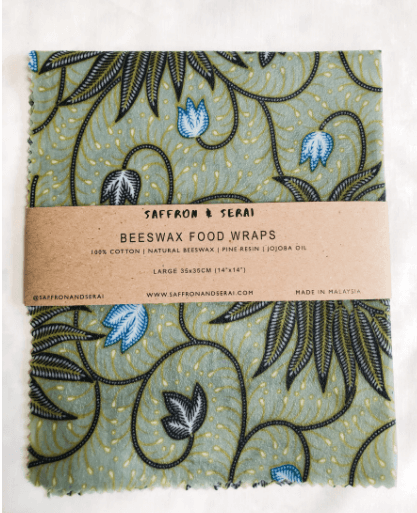
- Made from 100% Cotton, Natural Beeswax, Pine Resin and Jojoba Oil.
- Eco friendly and sustainable way to replace cling film.
- Reusable, and compostable. Beeswax and Jojoba Oil have antibacterial properties keeping your food fresh for longer.
- Last approximately 6 months or longer with proper care.
Latest price: Saffron & Serai
2. Saffron & Serai Coconut Bowls

- Handcrafted from coconut shells; natural and eco friendly.
- Comes with a spoon made from coconut wood and a Batik drawstring pouch made using upcycled fabric remnants.
- Polished to bring out its natural beauty.
Latest price: Saffron & Serai
3. The North Face Eco-Trail Synthetic 20 Sleeping Bag

- Eco friendly sleeping bag made of 100% recycled synthetic insulation.
- Provides maximum comfort and mobility with an extended width.
- Enhances warmth and comfort with a fitted hood.
- Provides extra security with an internal pocket for watch/phone.
- Heat loss prevention with draft collar.
- Easy to secure the bag to the sleeping bag with tie-down loops.
- Wraparound zipper allows the bag to lie flat.
- Vaulted footbox for feet warmth.
Latest price: Amazon
4. Eukarya Origin Headlamp

- Made of renewable wood, LED light, recycled aluminium.
- Provides brightness up to 300 lumens.
- Provides battery life up to 15 hours.
- Allows micro-USB charging.
- Comes with 50 degrees downward tilt.
- Weighs 2.99 oz.
- One purchase equals one tree planted.
Latest price: Eukarya
5. The North Face Stormbreak Tent
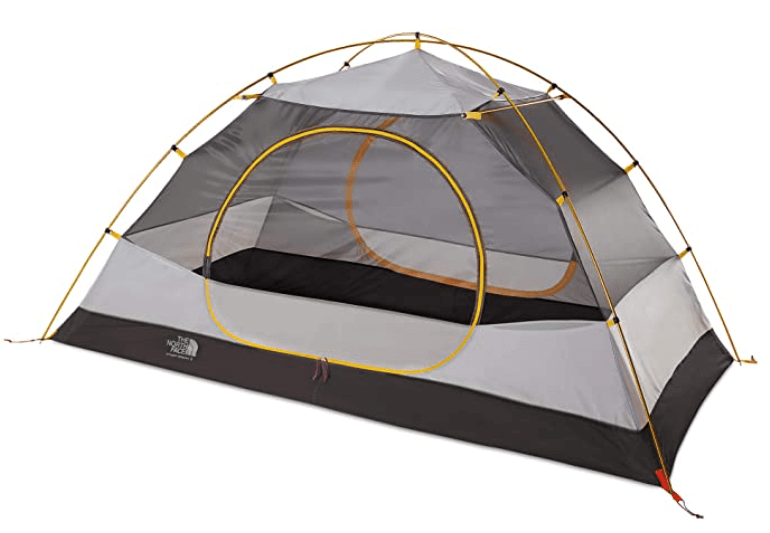
- One of the sustainable camping tents with easier access.
- Adjacent mesh pockets allows door stuffing instead of rolling them up.
- Canopy and floor are fully seam-taped.
- Ethical camping gear with easy-pitch design.
- With large doors and 2 multi-configuration vestibules
- Provides optimal airflow with high-low ventilation.
- Wide headroom.
- Footprint sold separately.
- Suitable with Tentertainment Center but sold separately.
Latest price: Amazon
6. GSI Outdoors Glacier Base Camper Cookset
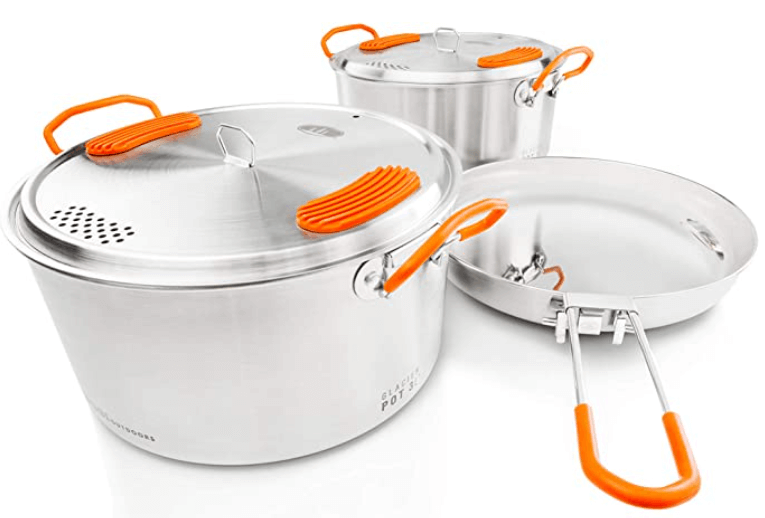
- Ideal for cooking for groups of 4 or more.
- Safe to use on the stove or over coals with an even controlled heat.
- Shatterproof stainless steel and compact nesting design.
- Sturdy and durable.
- 100% GSI Outdoors warranties.
Latest price: Amazon
7. Coalatree Puffy Kachula Adventure Blanket: Versatile & Durable
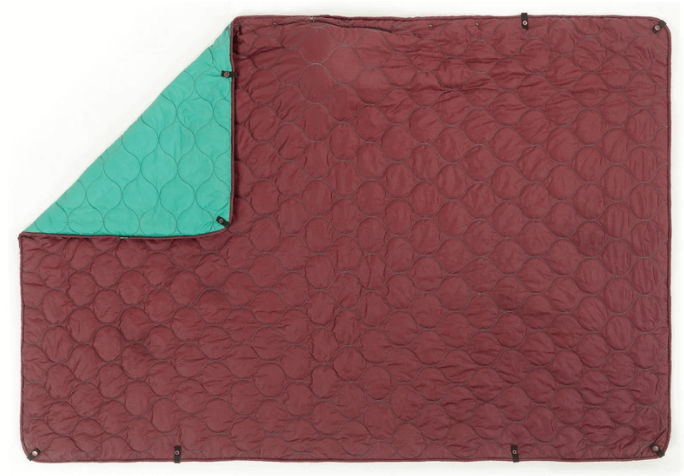
- Made from recycled polyester and coffee grounds.
- Water-resistant.
- Versatile: Can be made a poncho, cosy cape, sleeping bag or pillow.
- Easy clearing of sand, dirt and water.
Latest price: Coalatree
8. Vaude Tour 3.8 M Sleeping Mat

- Manufactured with eco friendly, 100% other fibres.
- Machine washable and easy handling.
- Minimal pack size.
Latest price: Vaude
9. BioLite CampStove 2 Wood Burning And USB Charging Camping Stove

- Charges phones, cameras, lights and more with 3 watts of usable power.
- An ethical camping gear with updated thermoelectrics.
- Easy monitoring on fire strength, power output and fan speed settings with Smart LED Dashboard.
- Improved combustion with 4 fan speed settings to circulate air.
- Boil 1L of water in 4.5 minutes.
- Fold up lightweight aluminium legs provide durability for camping, backpacking or power outages.
- Includes FlexLight to light surroundings
Latest price: Amazon
10. To-Go Ware Bamboo Travel Utensils
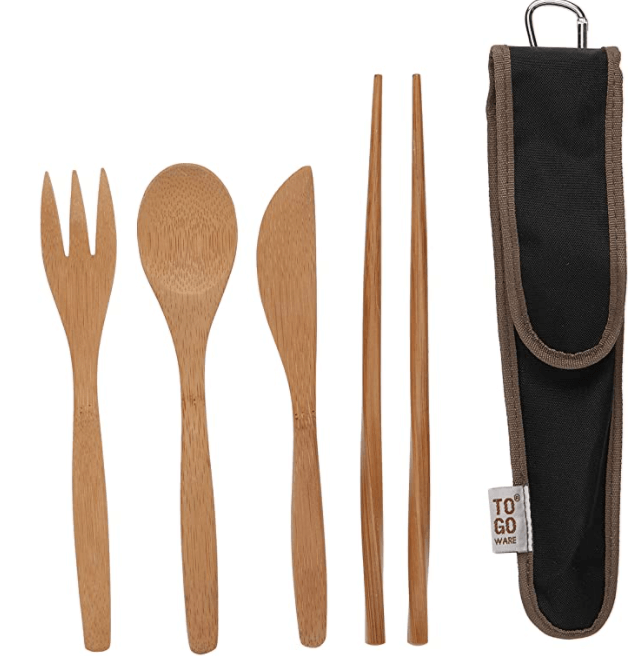
- Strong, lightweight utensil holder made of recycled plastic bottles, comes with secure hook-and-loop closure.
- Carabiner added for extra utility.
- Heat and stain-resistant bamboo utensils that don’t impart or absorb flavours.
- Finished with a top grade, food-safe wood oil.
- Dishwasher safe, but hand washing recommended for longer life.
Latest Price: Amazon
11. Friendly Natural Handmade Lemongrass & Hemp Soap
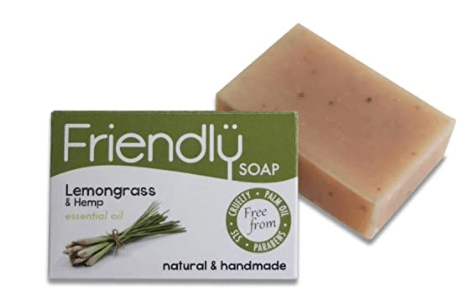
- Handmade with lemongrass essential oil for antiseptic, antibacterial and natural deodorising qualities and hemp for exfoliation.
- Free from palm oil, parabens, sulphates, triclosan, phthalates and cruelty.
- Packaging is plastic free and recyclable.
Latest price: Amazon
12. ETEE Zero Waste Toothpaste

- Contains natural ingredients of mint and vanilla flavours.
- Packaged in a glass jar (refills available in compostable pouches).
- Vegan friendly ingredients.
Latest price: ETEE
13. Incognito Natural, DEET Free Insect Repellent Spray 100ml
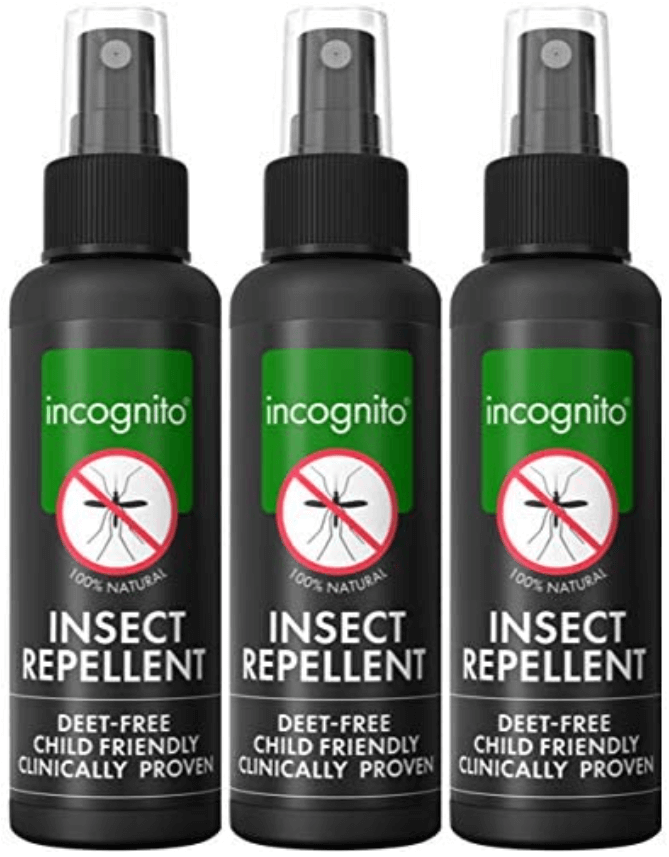
- Effective for up to 5 hours.
- Free from DEET-based synthetic compounds, which causes irritation and is unsafe for children.
- Proven to protect against mosquitoes carrying dangerous diseases such as zika and malaria.
- Protects against mosquitoes, midges, sandflies, horseflies, ticks and other insects.
- Multi-award winning, voted as one of the stand-out nature-friendly mosquito repellent products by the vegan society.
Latest price: Amazon
14. RONXS Camping Lighter

- Comes with real-time battery volume display.
- USB lighter provides over 600 uses in full charge.
- 4-inch long flexible neck is easily rotated 360 degrees to suit different lighting needs.
- Lightweight, allows daily indoor and outdoor use.
- Strong and durable with the wind and splash-proof design that protects the electric pulse.
- Less noise from the no flame and no butane features.
Latest price: Amazon
15. Helinox Lightweight Sustainable Camping Chair
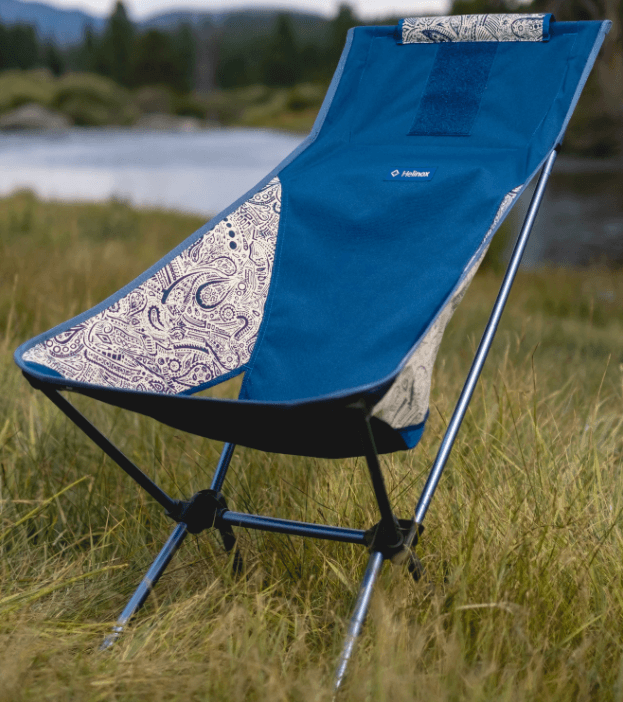
- Suitable for all weather conditions.
- Ethical camping gear that’s super portable and easy to set up.
- Can be stowed in a closet, car, or backpack.
Latest price: Helinox
There you have it – the little steps you can take to make a big impact on the planet. The idea of green camping is to save the environment for future generations.
Sustainable camping is easy once you understand the importance of protecting nature. It’s okay to not tick them all just yet. Start small and upgrade your method gradually.
So long as you don’t litter, damage the ecosystem, or have at least one ethical camping gear – you are already considered an eco-camper.
If you’ve never tried camping, give it a taste as this greener experience encourages you to solely rely on yourself without the everyday comfort and luxury.
Be careful though, you might get hooked!
